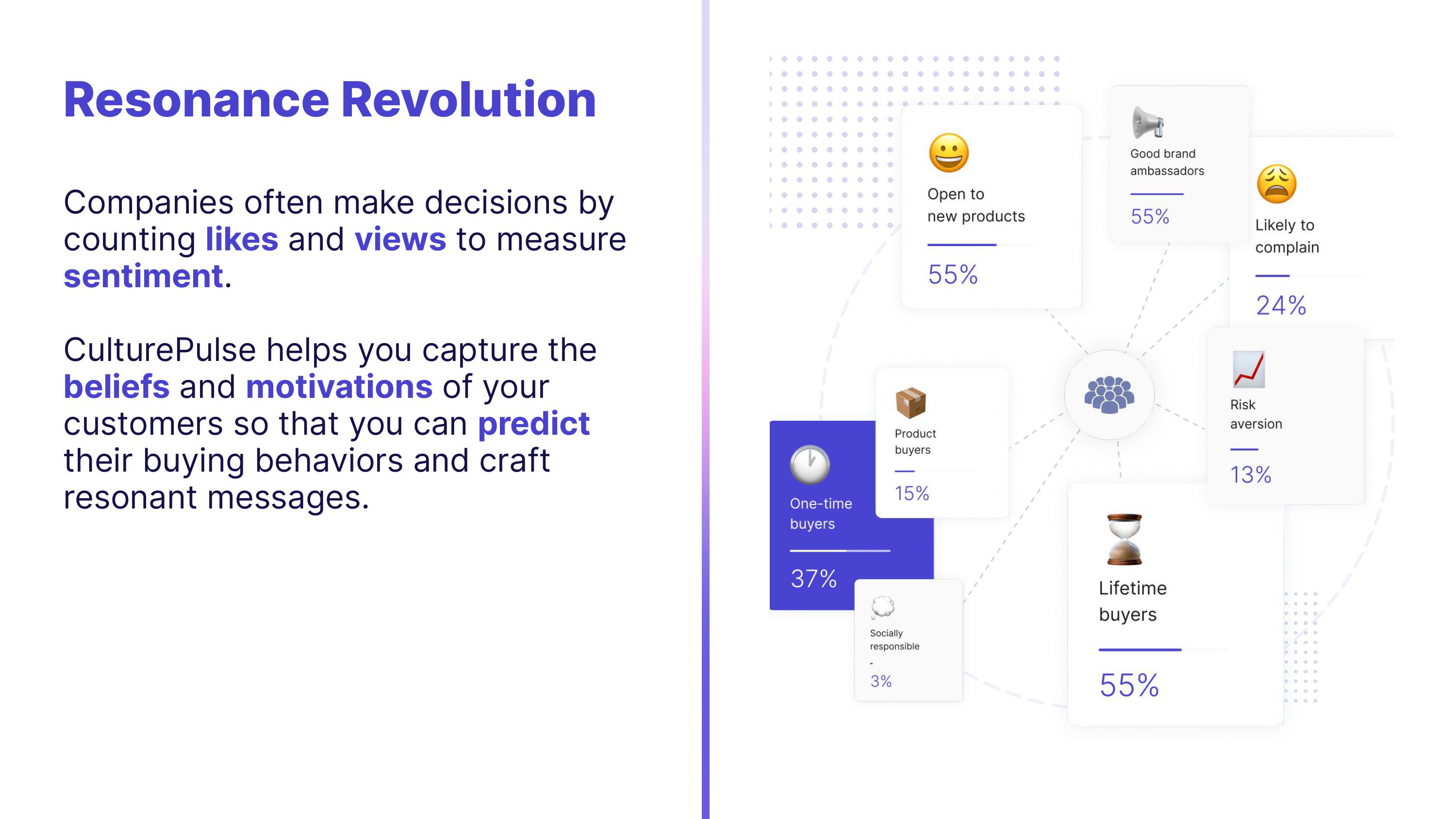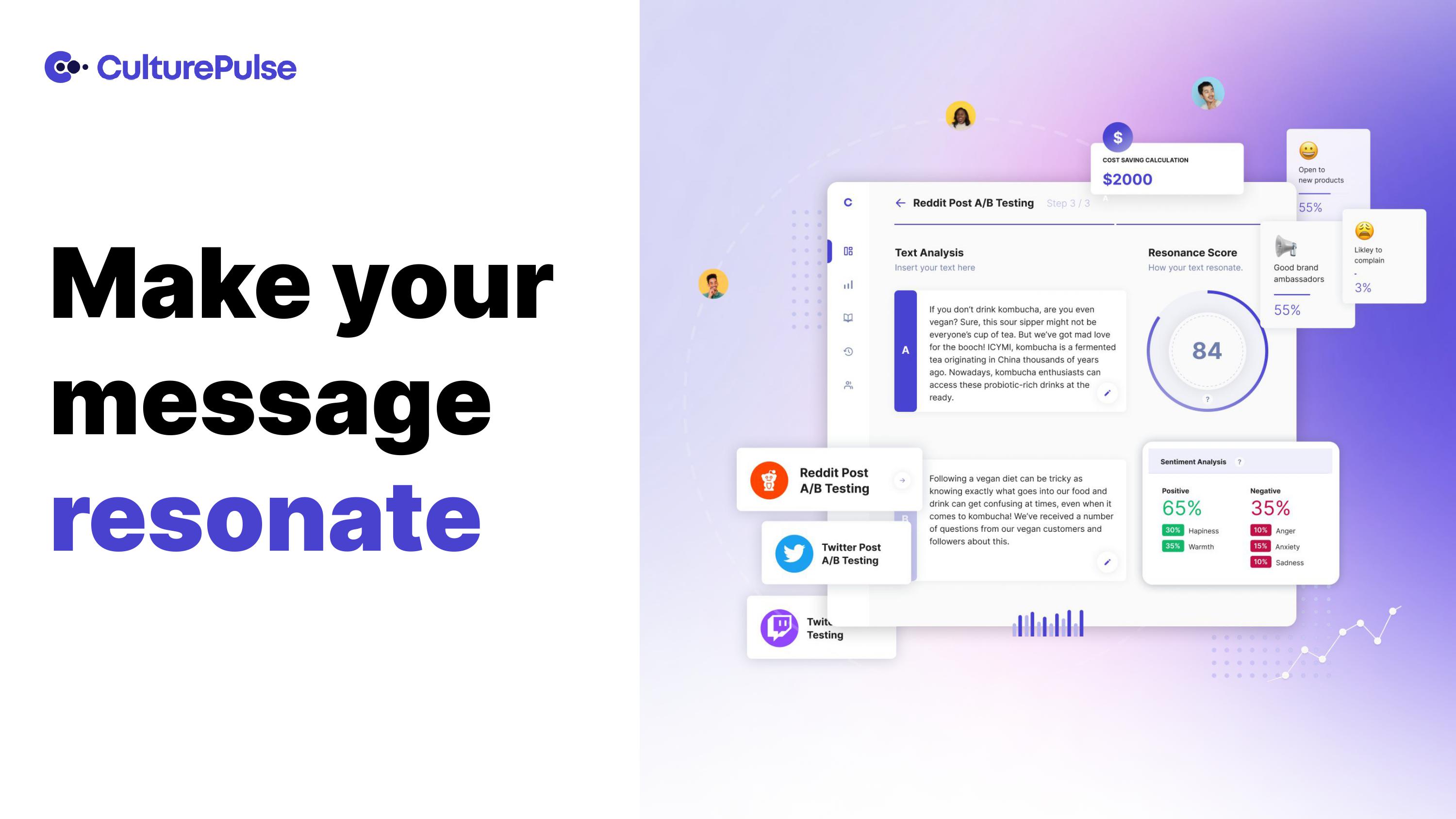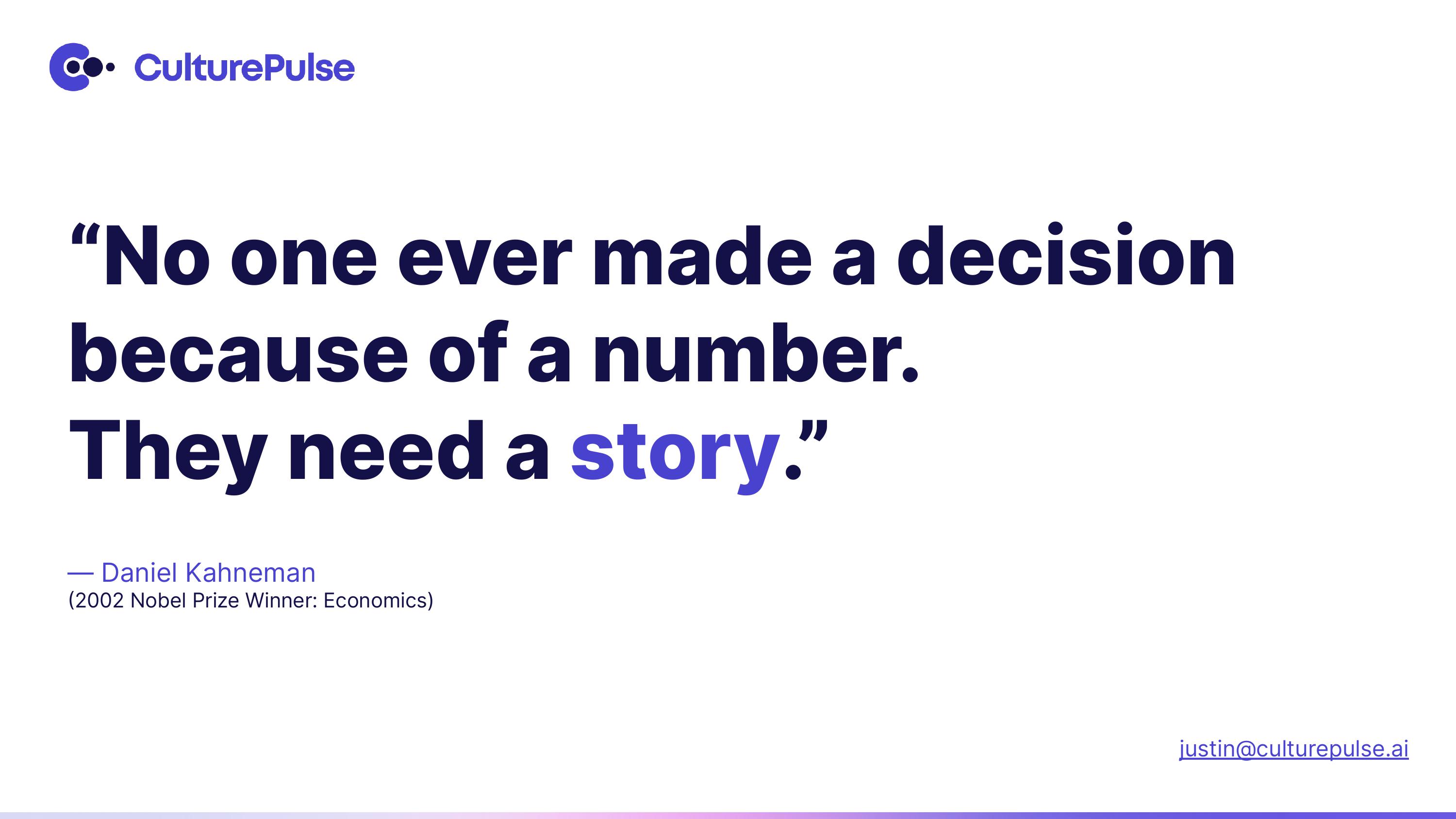Sentiment analysis, which means generalizing a feeling expressed by people in, say, online reviews, has been around for a hot minute. It’s a powerful feedback and quantitative analysis tool with wide-ranging political, commercial and social applications.
Slovakian company CulturePulse recently raised just short of a million dollars to move the needle further in this area. The company’s pitch deck is bad enough that I’m surprised it raised money, so let’s take a look at why that is and what could be improved.
We’re looking for more unique pitch decks to tear down, so if you want to submit your own, here’s how you can do that.
Slides in this deck
The company submitted its deck to us a couple of months ago, claiming that this terse, nine-slide presentation is what it used to pitch to VCs. It comprises of the following slides:
- Cover slide
- Solution slide
- Product slide
- Business model slide
- Customers and media slide
- Roadmap slide
- Team slide
- The ask slide
- Closing slide
Three things to love
I’m not going to lie: I really struggled to find three things I truly love about this deck. That said, here are a few things that stood out:
The solution space
The deck doesn’t have a problem slide per se, but this one passes as a combined problem/solution slide:

As much as I would have preferred a separate problem slide, this sort of works. On the left, it outlines the problem (presumably, that without CulturePulse’s product, it’s hard to capture the beliefs and motivations of customers) by stating what the solution does.
The part I really do like about this slide, though, is the illustration on the right: It shows some of the potential motivations that customers might have. For even better results, the company could have connected the dots with something like: “We enable you to spend more time focusing on your lifetime buyers than your one-time customers.” But the slide works as-is.
Cracking opening

“Show, don’t tell,” is one of the cornerstones of effective storytelling. “Make your message resonate,” combined with the product screenshot on the right is a great way to set the stage for an investment conversation. I particularly like the “resonance score” on the right — if it works, being able to test a bunch of copy to see what the AI believes will work best for the target platforms and audiences would make for a very smart approach.
I don’t like how this slide doesn’t take the audience into consideration: “Your” speaks to investors, and while there are investors on social media who might wish to use this product, they are probably not CulturePulse’s core audience. It’s needlessly confusing to have a “you” on a slide that’s talking to investors when it means your customers.
Great final thought
The deck closes with a poignant quote:

It’s a fantastic idea to give your would-be investors something to ponder at the end of a presentation. A quote from an economics Nobel Prize winner that essentially describes your business is as good a way to close as any. Very well done.
In the rest of this teardown, we’ll try to limit the things CulturePulse could have improved or done differently to just three things. Its full pitch deck is also included!
Three things that could be improved
Honestly, if CulturePulse were my pitch coaching clients, I’d ask them to rip this deck up and start over. In a nutshell, the deck is not fit for use.
So much missing information
Even just from looking at the table of contents, I found myself wondering what was going on. There’s so much information missing here.
Just off the top of my head, as an early-stage company, you need a minimum of three things to raise funds: A problem worth solving, a market large enough to sustain a VC-sized return and an incredible team. CulturePulse also doesn’t include a market-size slide, and it doesn’t fully talk about the problem it is solving (here’s more about why the problem slide is important). I’ll talk more about the team later.
It also doesn’t cover the competitive landscape, the product slide is way too sparse and the deck doesn’t explore the traction it has to date.
A Tech EU story on the company suggests that this fundraise was part of a pivot, which makes sense, but I’m curious what the company pivoted from and the traction it had there. There’s a way to tell the story if that’s the case: “We were doing X, and learned A, B and C. In the process, we discovered that with the domain knowledge and tech we developed, we would be more successful doing Y instead. That’s why we are raising money.” Not mentioning what you were doing before is just weird.
The company doesn’t explain why it has a competitive edge or a moat, and it doesn’t talk about whether it has intellectual property advantages. It even doesn’t explain what its go-to-market plan is.
There’s no slide explaining how it’ll use the funds, but we do get a roadmap that could possibly serve as such. Even so, the roadmap is pretty fuzzy as to what the company is actually hoping to deliver:

As a startup, you can learn from this slide that there are plenty of great templates for pitch decks out there (I have an example here, and there are dozens, if not hundreds, out there). You don’t have to use the template, but at least check if you’ve left out anything major.
Finally, you have a lot of freedom to play around with slides. You can put them in any order that makes sense and you don’t have to include everything. But there’s a reason why most slide decks contain roughly the same information: That’s what the investors are looking for in order to figure out whether to take a meeting and, ultimately, make an investment.
Leaving out half the info an investor might be looking for causes frustration at best, and may make an investor pass at worst. It makes you look like an unsophisticated entrepreneur.
What’s going on with this team?

I’ve said this before and it bears repeating: The team slide is one of the most important slides in a pitch deck.
In a world where sentiment analysis has been around for a long time (there are academic papers from 50 years ago starting to describe the approach), you better have a great team with deep domain expertise and experience building such products.
There are many ways to tell this story, but this team slide simply fails to do that. It’s impressive that the co-founders have doctorates from Oxford and Princeton, but it’s only relevant if those degrees have something to do with the product space. The CRO’s LinkedIn suggests he’s only on the team part time, which does happen, but it is curious for a startup at this stage.
It’s also intriguing that the company has two co-CFOs. Companies this size rarely have a CFO at all, let alone extremely experienced ones. Zdanowski doesn’t list his affiliation with CulturePulse on his LinkedIn nor does Kaplan. That’s pretty unusual. Both do work as fractional CFOs, but I’d be hesitant to list a CFO-for-hire alongside the core team at this stage.
As for the CPO and CMO, I appreciate the many years of experience they bring but I’d be curious how their past work is relevant to this business.
Overall, this flag makes me want to dig deeper into the team. I can’t see any startup experience, which is not a disaster since everyone has to start somewhere. But as an investor, I’d want to know whether the founding team has a realistic idea of the Herculean journey they are about to embark on. I’d also want to explore why this founding team is eager to explore this problem space.
When I work with my pitch coaching clients, I often ask, “Why you? Why now? Why this?” to understand why a founder is passionate about the problem they are about to solve. If I get a lukewarm answer, I can almost guarantee that the team will struggle to raise money.
Finish the sentence
A startup slide deck is supposed to be a conversation: You set up a question and you answer it. What’s the market? X. What’s the problem? Y. What’s the value proposition? Z.
Sometimes, companies fall into the trap of only asking the question. This slide is a great example of that:

The slide is labeled “Customers” and “Media,” but given that this product could potentially be helpful for media companies, it’s not clear whether the company got coverage or if these media companies are trialing or using the product.
On the “Customers” side, I recognize the university brands, but I’d want to know whether they are paying customers and what they are using the product for.
In short, this slide doesn’t work. I can’t tell what the company is trying to say here.
What’s worse, this is the only slide that could be seen as a “traction” slide. I’m confused what the traction is here: It doesn’t show revenue, amount of engagement, efficacy, number of queries, etc. It’s so vague as to be nearly useless.
As a startup, it’s your job to explain to an investor that you’re on the right path. That’s true for every slide, but especially for a traction slide like this. This slide isn’t working to do that.
The full pitch deck
If you want your own pitch deck teardown featured on TC+, here’s more information. Also, check out all our Pitch Deck Teardowns and other pitching advice, all collected in one handy place for you!































Comment